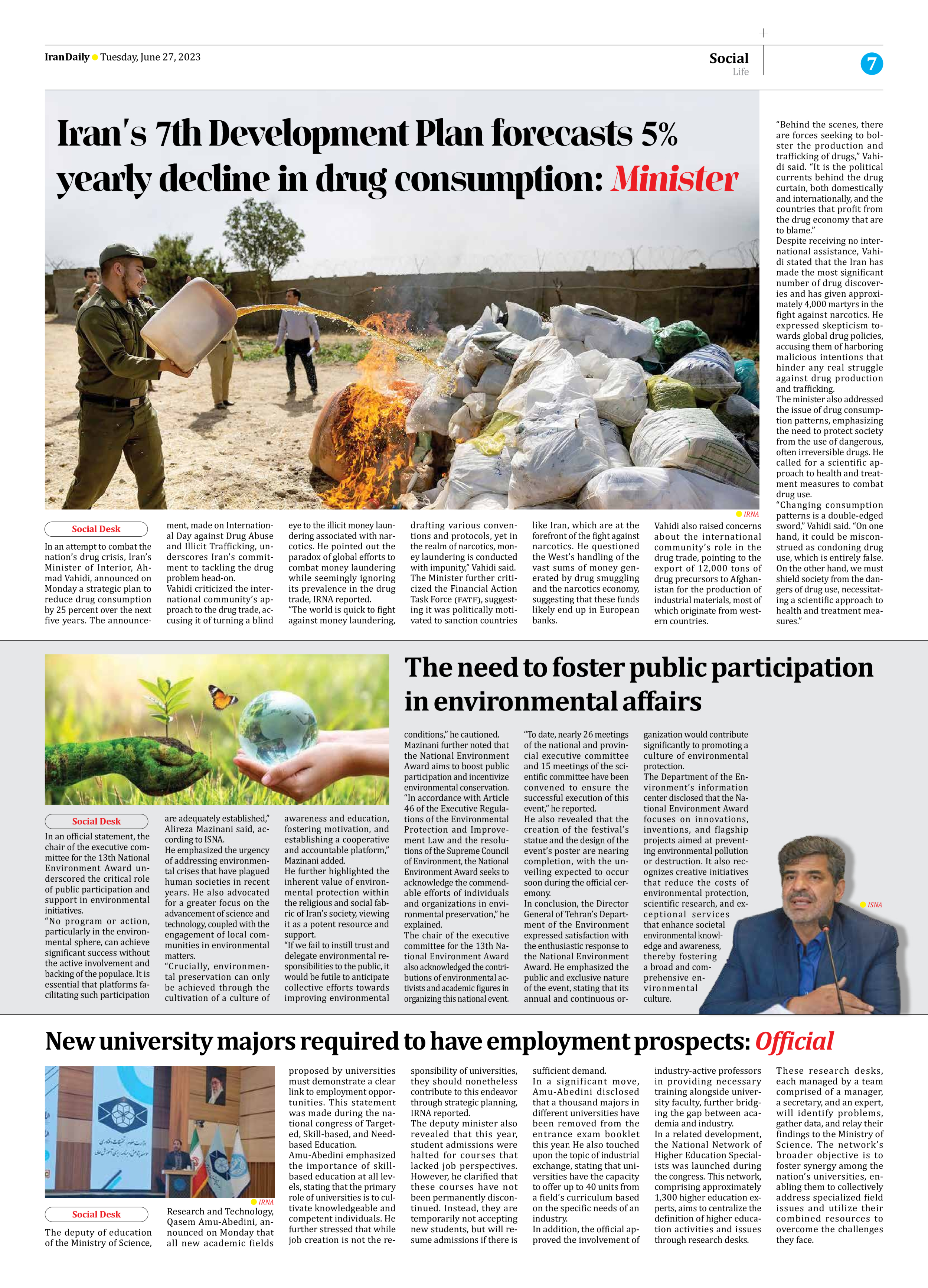
Iran’s 7th Development Plan forecasts 5% yearly decline in drug consumption: Minister
In an attempt to combat the nation’s drug crisis, Iran’s Minister of Interior, Ahmad Vahidi, announced on Monday a strategic plan to reduce drug consumption by 25 percent over the next five years. The announcement, made on International Day against Drug Abuse and Illicit Trafficking, underscores Iran’s commitment to tackling the drug problem head-on.
Vahidi criticized the international community’s approach to the drug trade, accusing it of turning a blind eye to the illicit money laundering associated with narcotics. He pointed out the paradox of global efforts to combat money laundering while seemingly ignoring its prevalence in the drug trade, IRNA reported.
“The world is quick to fight against money laundering, drafting various conventions and protocols, yet in the realm of narcotics, money laundering is conducted with impunity,” Vahidi said.
The Minister further criticized the Financial Action Task Force (FATF), suggesting it was politically motivated to sanction countries like Iran, which are at the forefront of the fight against narcotics. He questioned the West’s handling of the vast sums of money generated by drug smuggling and the narcotics economy, suggesting that these funds likely end up in European banks.
Vahidi also raised concerns about the international community’s role in the drug trade, pointing to the export of 12,000 tons of drug precursors to Afghanistan for the production of industrial materials, most of which originate from western countries.
“Behind the scenes, there are forces seeking to bolster the production and trafficking of drugs,” Vahidi said. “It is the political currents behind the drug curtain, both domestically and internationally, and the countries that profit from the drug economy that are to blame.”
Despite receiving no international assistance, Vahidi stated that the Iran has made the most significant number of drug discoveries and has given approximately 4,000 martyrs in the fight against narcotics. He expressed skepticism towards global drug policies, accusing them of harboring malicious intentions that hinder any real struggle against drug production and trafficking.
The minister also addressed the issue of drug consumption patterns, emphasizing the need to protect society from the use of dangerous, often irreversible drugs. He called for a scientific approach to health and treatment measures to combat drug use.
“Changing consumption patterns is a double-edged sword,” Vahidi said. “On one hand, it could be misconstrued as condoning drug use, which is entirely false. On the other hand, we must shield society from the dangers of drug use, necessitating a scientific approach to health and treatment measures.”







